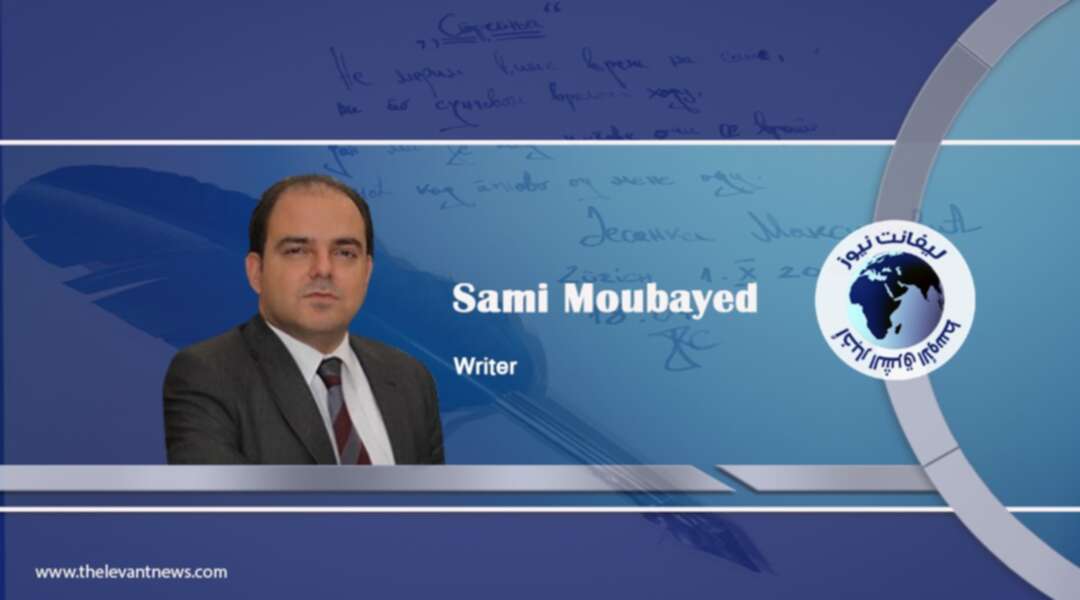-
The very successful facelift of Ammar al-Hakim and Muqtada al-Sadr

Two of the most successful face-lifts in contemporary Arab politics can be attributed to Iraqi Shiite clerics Ammar al-Hakim and Muqtada al-Sadr. Both began their careers as staunch allies of Iran and yet, they have managed to brilliantly rebrand themselves as Iraqi nationalists, speaking for all sects and not just their native Shiite community. Those who have never visited Iraq and are unfamiliar with the inner workings of the Shiite community took their words at face-value, to the extent of portraying them as “critics” of Iran. That is a very flawed assessment, however, blatantly un-informed and both historically and factually incorrect.
Last October, Sadr swept the lion’s share of seats in the Iraqi Chamber of Deputies (a total of 73), putting him at daggers-end with the Coordination Framework, a coalition of Iran-backed Shiite parties that lost their majority standing in the Iraqi Parliament. The Coordination Framework includes the Fatah Alliance of Hadi al-Amiri, the Nasr Alliance of ex-Prime Minister Haidar Abadi, and the State of Law Coalition of former premier, Nouri al-Malki, in addition to Ammar al-Hakim’s al-Hikam Party. Hakim and Sadr are presently at daggers-end, each claiming to represent mainstream Iraqi Shiites. They agree on practically nothing, neither on who holds the biggest bloc into parliament nor on who Iraq’s new prime minister should be. This is not new, however. It has always been that way, mirroring a historic conflict between the Hakim and Sadr families that has been handed down from one generation to another, spanning an entire century.
The rise of Ammar al-Hakim
Hakim is a member of the third generation of the powerful Hakim family, which claims its lineage to the Prophet Mohammad. His grandfather was a renowned scholar and leading authority in the Shia community and six of his sons were killed at Saddam Hussein orders. The Hakims fled to Iran after the Khomeini Revolution in 1979, and with Iranian funds, they set up the Supreme Council for the Islamic Revolution in Iraq (SCIRI). Their men famously took up arms against the Iraqi Army in Iran-Iraq War, openly calling for the establishment of an Iraq-inspired Shiite theocracy in Baghdad.
With the overthrow of Saddam’s regime in 2003, the Hakims returned to Iraq and leadership of the family eventually went to Ammar after the death of his father, Abdul-Aziz. As reward for helping bring down the Saddam regime, SCIRI was given control of the powerful Ministry of Interior, where it used Iraq’s police to hunt down traditional enemies of the Hakim family, whether among Sunnis or within the Shiite community as well (notably, the Sadrists).
Born in 1971, Ammar al-Hakim grew up in Iran and speaks flawless Persian, having studied at private Iranian schools and gradu ated from the Islamic Arab Univer sity in Qom. He never trained as a cleric but put on Islamic uniform when assuming leadership of the family in 2009, also running by the honorific title “Sayyed” (which means descendant of the Prophet).
In 2017, Hakim announced that he was parting ways with SCIRI, and by extension, with Iran, setting up a new political party called al-Hikma (Wisdom). Some took him at face-value, others argued that this was nothing but a PR stunt ahead of Iraq’s 2018 elections, aimed at re-branding him as an independent speaking for all Iraqis, not just Muslim Shiites.
On paper, Hakim’s party seems to distance itself from everything Hakim has stood for throughout his political career. It condemns the militarization of Iraqi society, forgetting that SCIRI’s armed wing, the Badr Brigade, was one of the most ferocious militias in post-2003 Iraq. He claims that al-Hikma is not a Shiite party and that it is open to Sunnis as well, using flashy slogans like “accountability, constitutionalism, and rule of law” to appeal to a new generation of Iraqis, none of which ever applied to Hakim or SCIRI.
Muqtada al-Sadr’s PR stunts
On the opposite end of the Shiite community, Muqtada al-Sadr has been trying to pull off another stunt, with far greater success than Hakim. He too hailed from a prominent family of Shiite clerics, who, unlike Hakim, were never on Iranian payroll. They too had been persecuted, jailed, and killed by Saddam. Sadr launched his career with a famed insurgency against the Americans back in 2004, which had Iran’s fingerprints all over it, creating a powerful militia known as the Mehdi Army. It rose to fame as protector of the Shiite neighborhood called Sadr City, and marketed itself as a prime opponent of Hakim’s SCIRI. Sadr sheltered his men from accountability, giving them a free hand to run the streets of Iraq, in exchange for their unwavering loyalty. They rose to fame in December 2006, when appearing as masked executioners they put the noose around Saddam Hussein’s neck while chanting: “Muqtada, Muqtada.”
Two years later, the Iranians brought Sadr to Qom, with the aim of sharpening his religious credentials. Back in Iraq, they put a freeze on activities of the Mehdi Army, purging it from rowdy thugs. Sadr returned to Iraq a newborn statesman, made intellectually, financially, and politically stronger by the Iranians. He switched from bullets to ballots, establishing himself as a kingmaker in Iraqi politics, whose final say helped keep Nouri al-Malki in power until 2014, when he played a crucial role in replacing him, first by Haidar Abadi and then, by Adel Abdul Mehdi in 2019. All three premiers were handpicked for the job by the Iranians.
Over the past ten years, Sadr repeatedly spoken out against foreign tutelage in Iraq, which many saw as thinly-veiled criticism of Iran. Three years ago, he supported demonstrators that took to the streets in Basra, demanding better services as they torched the Iranian consulate. In April 2017, he called on Iran’s top ally, Syrian President Bashar al-Assad, to step down, yet another stunt that western pundits considered, very erroneously, as a break with Tehran. Three months later, he showed up in the port city of Jeddah for a meeting with Saudi Crown Prince Mohammad Bin Salman (MBS). Both stunts made world headlines, coming at the heels of Saudi-Iranian polarization in the Muslim World. What didn’t appear in mainstream media, however, was Sadr’s September 2019 visit to Tehran, where he was received by none other than the Supreme Leader Ayatollah Ali Khamenei. Sadr was pictured seated at the Ayatollah’s knees—a privilege in Iran, reserved only for those who are 100% loyal, and far beyond suspicion. Last summer, he sent a cable to the Presidential Palace in Damascus, congratulating Assad on his re-election.
Shortly after sweeping the parliamentary elections in October 2021, Sadr announced that he was disbanding the Mahdi Army, now known as the Promised Day Brigade. He called on other militias to follow suit, just like Ammar al-Hakim had done back in 2017. Both men tried coming across as responsible and cross-sectarian politicians, regardless of their political history. Had it not been for their militias, then neither Sadr nor Hakim would have been at the helm of the Shiite community in 2022. Both relied on their armed men after the breakdown of law and order in 2003, and both used them to eliminate potential opponents, within the Shiite community and beyond.
Even their current parliamentary blocs would not have been possible, nor sustainable, if it were not for the militias that are stationed at the gates of the Iraqi Parliament, armed to the teeth and pledging blind loyalty to Ammar al-Hakim and Muqtada al-Sadr. The two men might still be in disagreement on who gets what in the Shiite community, and who deserves to lead it, but beyond that, both remain staunch Iranian allies who contrary to what is said in the Western press, would never abandon Iran, nor lift a finger to obstruct its influence in Iraq.

BY: Sami Moubayed
You May Also Like
Popular Posts
Caricature
BENEFIT Sponsors BuildHer...
- April 23, 2025
BENEFIT, the Kingdom’s innovator and leading company in Fintech and electronic financial transactions service, has sponsored the BuildHer CityHack 2025 Hackathon, a two-day event spearheaded by the College of Engineering and Technology at the Royal University for Women (RUW).
Aimed at secondary school students, the event brought together a distinguished group of academic professionals and technology experts to mentor and inspire young participants.
More than 100 high school students from across the Kingdom of Bahrain took part in the hackathon, which featured an intensive programme of training workshops and hands-on sessions. These activities were tailored to enhance participants’ critical thinking, collaborative problem-solving, and team-building capabilities, while also encouraging the development of practical and sustainable solutions to contemporary challenges using modern technological tools.
BENEFIT’s Chief Executive Mr. Abdulwahed AlJanahi, commented: “Our support for this educational hackathon reflects our long-term strategic vision to nurture the talents of emerging national youth and empower the next generation of accomplished female leaders in technology. By fostering creativity and innovation, we aim to contribute meaningfully to Bahrain’s comprehensive development goals and align with the aspirations outlined in the Kingdom’s Vision 2030—an ambition in which BENEFIT plays a central role.”
Professor Riyadh Yousif Hamzah, President of the Royal University for Women, commented: “This initiative reflects our commitment to advancing women in STEM fields. We're cultivating a generation of creative, solution-driven female leaders who will drive national development. Our partnership with BENEFIT exemplifies the powerful synergy between academia and private sector in supporting educational innovation.”
Hanan Abdulla Hasan, Senior Manager, PR & Communication at BENEFIT, said: “We are honoured to collaborate with RUW in supporting this remarkable technology-focused event. It highlights our commitment to social responsibility, and our ongoing efforts to enhance the digital and innovation capabilities of young Bahraini women and foster their ability to harness technological tools in the service of a smarter, more sustainable future.”
For his part, Dr. Humam ElAgha, Acting Dean of the College of Engineering and Technology at the University, said: “BuildHer CityHack 2025 embodies our hands-on approach to education. By tackling real-world problems through creative thinking and sustainable solutions, we're preparing women to thrive in the knowledge economy – a cornerstone of the University's vision.”
opinion
Report
ads
Newsletter
Subscribe to our mailing list to get the new updates!






















